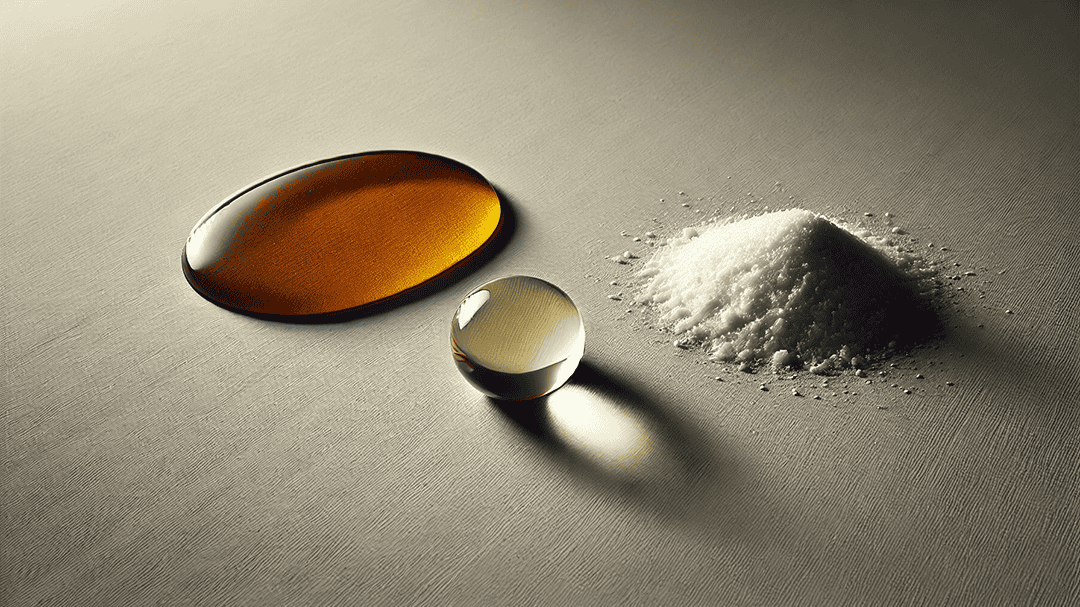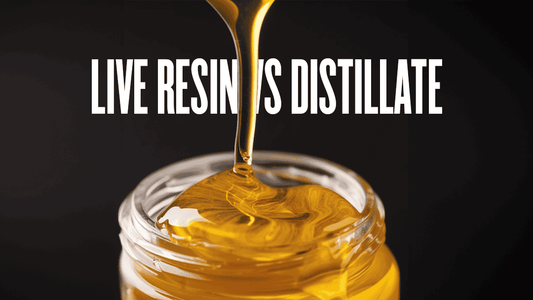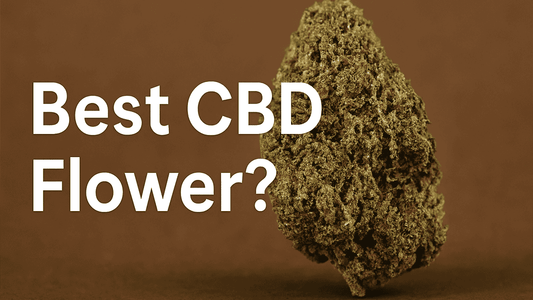Once an outlier in the wellness world, cannabidiol (CBD) has quickly gone mainstream. CBD is no longer out of place on supermarket shelves or in health shops; these days, the cannabinoid is touted as a key ingredient in a huge range of products, from haircare and skincare to pet supplements.
As the popularity of cannabidiol (CBD) continues to rise, understanding what’s on the market — the various types and forms of products — is essential for consumers looking to spend wisely and make informed choices.
This guide explains the three primary types of CBD and covers a few of the most popular products. Here’s what to know about the unique properties and potential benefits of all the forms of CBD you might come across.
What are the different forms of CBD?
CBD products are generally categorized into three types based on their cannabinoid content and extraction processes. These are full-spectrum, broad-spectrum, and isolates. Here’s what to know about each.
1. Full-spectrum CBD

Full-spectrum CBD is a CBD-rich product that also includes various other cannabinoids, terpenes, and flavonoids. Importantly, it contains a small amount of tetrahydrocannabinol (THC) — up to the legal limit of 1 mg per product. Despite the presence of CBD’s psychoactive cousin, do not fear — full-spectrum products won’t make you feel stoned.
Instead, the trace amounts of THC, while too tiny to make you feel intoxicated, play a key role in contributing to the entourage effect — where the presence of other cannabinoids and terpenes enhances the benefits of CBD.
Ultimately, the science says it best. A 2011 review published in the British Journal of Pharmacology found that the entourage effect could enhance the therapeutic effects of CBD, particularly in the management of pain and inflammation. Other studies have concluded similarly that full-spectrum may be the most effective form of CBD in certain therapeutic contexts and circumstances.
2. Broad-spectrum CBD

Broad-spectrum CBD is similar to full-spectrum; it is more of a sibling than a cousin. It includes multiple cannabinoids and terpenes found in the hemp plant. The notable difference is that broad-spectrum products undergo additional processing, whereby all THC content is removed.
This form of cannabidiol thus offers the potential benefits of the entourage effect (which is buoyed by but does not require THC) without the presence of the intoxicating compound.
As such, broad-spectrum products are well suited to anyone keen to avoid THC entirely but still benefit from the synergistic effects of consuming multiple cannabinoids together.
When it comes to effectiveness, broad-spectrum offerings can pull some weight (despite many CBD evangelists solely touting the benefits of full-spectrum offerings). Take one 2018 study published in the Journal of Clinical Psychopharmacology, which reported that a combination of CBD and other cannabinoids found in broad-spectrum CBD was effective in helping to reduce anxiety in patients with social anxiety disorder.
3. CBD isolate

CBD isolate is often considered the purest form of CBD. This is because isolates contain 99% pure cannabidiol, with all other plant compounds and cannabinoids chemically removed.
Isolates are, therefore, ideal if you’re seeking to experience the effects of CBD without consuming any other cannabinoids or terpenes. It’s also likely the best choice of CBD if you’re concerned about being drug-tested at work.
So, do isolates offer the same benefits as other types of CBD? Well, the jury is out. Studies conducted on mice indicate that while CBD isolate can be effective, you may require higher doses to achieve the same level of symptom relief associated with using full-spectrum or broad-spectrum CBD - due to the absence of the all-important entourage effect.
However, this doesn’t mean consuming isolate is pointless. CBD isolate's anti-inflammatory and analgesic properties are well documented, including in a 2015 study published by Pharmacology & Pharmacy, which demonstrated isolates could reduce inflammation and pain in animals.
It’s important to note that while all of the studies outlined in this guide offer useful insights, they do not represent conclusive evidence. CBD research is limited in scope, and most studies are not conducted on humans. Therefore, it’s not possible to draw empirical conclusions or establish causation using the data gathered.
What else to consider when choosing CBD?
Now you know the basics about the three main types of CBD, there are some other factors to consider. Here’s what to look out for and things to be aware of if you’re looking to make a purchase.
Consumption type
CBD can be vaped, ingested (as an edible, a gummy, or sublingual oil), smoked, or applied as a topical, patch, cream, or even a spray. So, it’s important to identify which consumption method will work best for you and factor this into your choice.
For example, if you’re looking to vape CBD, be aware that UK-legal CBD vapes are made either CBD isolate (most commonly) or broad-spectrum.
Lab testing
Look for third-party lab-tested CBD. Third-party testing labs have no affiliation with the CBD industry – you can trust what they say about the quality and origin of your product. With an industry full of rogue operators grappling to get a piece of the cannabinoid-infused pie, some low-quality, unsafe products succeed in marketing themselves as premium quality. Third-party lab testing eliminates this possibility, allowing you to be secure in the knowledge that your product contains exactly what it says it does.
Choose a reputable brand
The quality and efficacy of CBD products can vary wildly, depending on the brand or manufacturer. Generally speaking, CBD is extremely safe and a well-tolerated supplement.
However, to ensure that the CBD you use is as safe and effective as possible, it needs to be of high quality. Only select products sold and produced by reputable brands. This is the best way to avoid scam companies, the existence of which is an unfortunate reality of the booming wellness industry.
Crucially, choosing an established brand with legitimate reviews and a solid reputation will also ensure that the product you’re consuming meets legal requirements and regulations. At Hemp Elf, our customer satisfaction score of 4.87/ 5 is based on more than 3450 verified reviews, all of which are available to read online.
Understand the limitations of all types of CBD
Finally, it is important to remember that CBD is a natural herbal supplement that, by interacting with your endocannabinoid system (ECS), may contribute to your overall well-being. It is not a medical treatment or replacement for traditional medication, and you may find it doesn’t work for you.
It’s also crucial to keep in mind that CBD may interact with any other medications you are taking. Always consult your doctor for advice on how to treat any medical conditions or concerns you have, and ensure you have a medical professional’s clearance to consume CBD if you take any prescription medication.
Which type of CBD is best?
Understanding the different types of CBD and the benefits and drawbacks of each is crucial for any consumer. Whether you're exploring CBD for relaxation or to support your overall wellness, there's a product type and form that can align with your goals and preferences. Ultimately, there is no “best” type of CBD; instead, different types of products work best for different requirements and circumstances.
Always consult with a healthcare professional before starting any new supplement regimen to ensure it's appropriate for you to consume and to determine the optimal dosage.

 4.6 Rating. Excellent.
4.6 Rating. Excellent.





